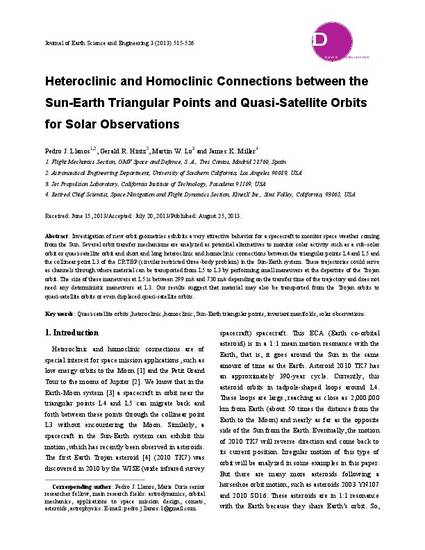
Investigation of new orbit geometries exhibits a very attractive behavior for a spacecraft to monitor space weather coming from the Sun. Several orbit transfer mechanisms are analyzed as potential alternatives to monitor solar activity such as a sub-solar orbit or quasi-satellite orbit and short and long heteroclinic and homoclinic connections between the triangular points L4 and L5 and the collinear point L3 of the CRTBP (circular restricted three-body problem) in the Sun-Earth system. These trajectories could serve as channels through where material can be transported from L5 to L3 by performing small maneuvers at the departure of the Trojan orbit. The size of these maneuvers at L5 is between 299 m/s and 730 m/s depending on the transfer time of the trajectory and does not need any deterministic maneuvers at L3. Our results suggest that material may also be transported from the Trojan orbits to quasi-satellite orbits or even displaced quasi-satellite orbits.
Available at: http://works.bepress.com/pedro_j_llanos/27/

Dr. Llanos was not affiliated with Embry-Riddle Aeronautical University at the time this article was published.